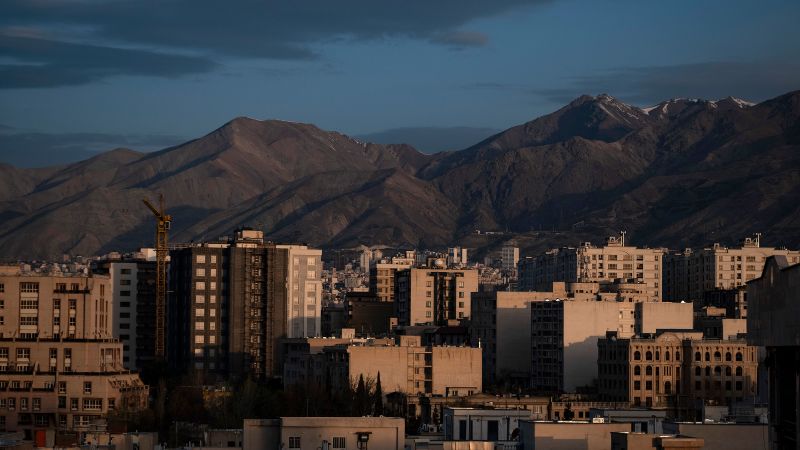The ongoing tensions within the Middle East, particularly between Israel and Iran, are being exacerbated by recent intelligence indicating that Israel is contemplating military action against Iran’s nuclear facilities. Reports have emerged suggesting that this anticipation of an Israeli strike occurs concurrently with the Trump administration’s pursuit of a diplomatic resolution with Tehran. According to multiple U.S. officials who shared insights with CNN, such a military campaign would not only diverge significantly from President Donald Trump’s diplomatic approach but could inherently incite a broader regional conflict — a scenario the United States has strived to avoid following the escalation of tensions in Gaza starting in 2023.
Presently, the degree to which Israeli leadership may or may not commit to such a strike remains uncertain. U.S. officials conveying this intelligence highlight existing divisions within the U.S. government regarding Israel’s intention to take military action. The decision, it seems, is contingent upon Israel’s assessment of the ongoing U.S. negotiations with Tehran regarding its nuclear ambitions. Notably, recent intelligence assessments indicate that the probability of an Israeli attack against Iranian nuclear installations has markedly increased in recent months. This upsurge in risk is exacerbated by diplomatic conditions. A potential U.S.-Iran deal, potentially negotiated by President Trump, may not fully curtail Iran’s uranium enrichment activities, thus further raising concerns regarding Israel’s willingness to act militarily.
Adding to the complexities, the perceived intentions of Israeli officials, evidenced by intercepted communications and observed military maneuvers, imply a looming possibility of a strike. Reports indicate that there has been significant military preparation, including the mobilization of air munitions and the completion of a substantial air exercise by Israel, aimed at sending a strategic signal to Tehran regarding the severe repercussions of continuing its nuclear pursuits.
However, experts caution that these military movements could alternatively serve as tactical pressure on Iran, rather than a preamble to immediate military action. This perspective reflects the multifaceted nature of the geopolitical landscape currently faced by the U.S. administration. Engagement from both the National Security Council and Israel’s prime minister’s office has been requested by CNN for official responses to these allegations, though no comments have been made as of now.
Trump’s administration has reiterated threats of military action should diplomatic negotiations falter, specifying to Iran’s Supreme Leader Ayatollah Ali Khamenei a 60-day timeframe for successful negotiations. This window is now surpassed, which adds further pressure on negotiations. A senior diplomat conveyed that Trump has mandated a swift resolution to the diplomatic talks before considering military intervention, but presently, the official stance from the White House is one of diplomacy.
This precarious position places Israel at a crossroads. Observers like Jonathan Panikoff, a former senior intelligence official, have remarked that Israeli Prime Minister Benjamin Netanyahu faces the dual pressure of averting a U.S.-Iran agreement perceived as unfavorable while also maintaining a cooperative relationship with Trump. Panikoff underscored that Israel’s strategic decision-making is likely to heavily depend on U.S. policies and the outcomes of Trump’s negotiations. Netanyahu’s aversion to jeopardizing relations with the United States complicates the decision-making process regarding a military strike.
Defense analysts characterize Iran as being in a notably weakened military position, following Israeli strikes that targeted its missile production facilities and air defenses, coupled with sanctions impacting its economy. The combination of these factors has led U.S. officials to believe that Israel views this as an opportune moment to act against Iran’s nuclear capabilities.
With the Trump administration ramping up intelligence efforts in anticipation of a potential Israeli strike, a consensus emerges that while readiness exists for U.S. support, significant military assistance may not be forthcoming unless provoked by Iran. Israel’s inability to independently dismantle Iran’s nuclear aspirations without U.S. cooperation underscores the intricacy of the military dynamics at play.
Controversially, an Israeli source has asserted that military action could be taken independent of U.S. assistance should negotiations culminate in what Israel judges to be an unfavorable outcome. The potential for an Israeli strike is discussed in the context of deterring a “bad deal,” signaling a willingness to act robustly if deemed necessary.
In conclusion, the interplay of diplomatic negotiations concerning Iran’s nuclear ambitions and Israel’s military strategy presents a challenging landscape for peace and stability in the region. The prospects of continued negotiations juxtaposed with the potential for military intervention highlight the delicate balance that U.S. policy must navigate in the face of escalating tensions and deeply entrenched regional hostilities. As discussions between the U.S. and Iran continue amid mounting tensions, the regional climate remains precarious.



